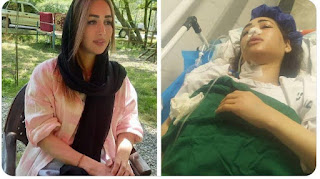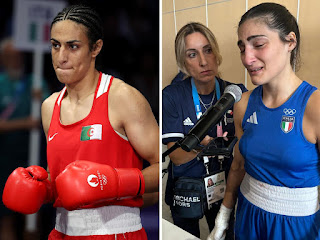In one of the most dangerous countries in the world to be a Christian, Iran has one of the fastest-growing underground churches. Christianity is illegal in Iran. Yet, despite facing imprisonment, torture, and execution, millions of Iranians are forsaking Islam and converting to Christianity. One unidentified Iranian church leader from the documentary film, "Sheep Among Wolves," directed by Dalton Thomas, declares:
"What if I told you Islam is dead? What if I told you that the mosques are empty inside Iran? What if I told you no one follows Islam inside Iran? Would you believe me?"
In the past several years, it has been widely reported that more than 50,000 mosques have closed their doors. There is a huge spiritual vacuum among Iranians and most Muslims are discovering who Jesus is through Mohabat TV, a 24-hour Farsi Christian satellite TV network that is beaming gospel programs into Iran. According to Open Doors International, more than 1.2 million believers in Iran are risking their lives and taking a stand for Jesus despite being arrested, put in solitary confinement, and tortured for their new-found faith. Back in 2005, then-President Mahmoud Ahmadinejad boasted that he would "stop Christianity in Iran." However, the promise of Jesus has triumphed over the boast of Ahmadinejad. Jesus declared,
"Upon this rock, I will build my church and the gates of hell shall not prevail against it." (Matthew 16:18)
What is so unique about Iran's "Christian awakening" and why it has exploded into the "fastest growing church in the world" is not because of loud rock concerts, pastors with seminary degrees, or well-planned events! In fact, it does not look like Western churches at all. These are average, hungry, and thirsty Muslims who have become disillusioned with the oppressive religion of Islam and are seeking something better! They gather together in small house church settings to read scripture, worship, and pray, What is even more unique about this movement is that it is being led by Iran's outcasts and downtrodden, and most of the leaders are women!
Iran is very unkind to women. It is one of the most oppressive places on the planet for females. They are treated like second-class citizens and it is no wonder that in God's perfect wisdom, He has called these oppressed females to be the bold and powerful leaders of house churches. The task of these house church leaders comprised mostly of women, is to make disciples of all new converts. There is no feminist agenda among the women. They simply love Jesus and because of their obedience amidst persecution and oppression, God has exalted them, giving them great strength and courage. They are not afraid of being thrown into prison. They courageously share the gospel fully understanding the risks and the consequences of their actions.
Lela Gilbert, award-winning author and senior Fellow for Religious International Religious Freedom, describes a typical house church meeting, in her article, "Good News from Iran, A Million New Christian Believers,"
"These house churches are usually comprised of no more than 10 to 15 believers. On a given day, they arrive, one by one, at a small apartment or some other nondescript location. After the last one enters, the door closes and locks, and they all take a deep breath and relax, greeting each other warmly.
A few minutes later, the little gathering begins to sing — very softly, accompanied by a quietly strummed guitar. They are cautious, not wanting their voices to be heard beyond the apartment’s thin walls. But soon, with closed eyes and hands lifted heavenward, they are lost in praise and worship music. Later a teaching from a biblical passage is offered and a communion service takes place. And finally, after more conversation they leave, one by one."
However, not all house churches go as smoothly as the one described in Lela's article. There are many times that security forces burst through the doors, tearing apart the residence, searching for laptops, phones, evangelistic publications, including Bibles, books, and DVDs. The members, including the leaders, are all arrested and charged with "acting against national security, Insulting Islam, or conducting a deviant activity." These brave house church members are fully aware of the aftermath and consequences of the raid. They can suffer the loss of employment, expulsion from school or university, be estranged from family members, and sentenced up to ten years in prison. Yet they are willing to count the cost of following Jesus and pay the price! These hungry and thirsty ex-Muslims take seriously the claims of Jesus when he said:
"I am the bread of Life: Whoever comes to me shall not hunger, and whoever believes in me shall never thirst." (John 6:35)
The next time that you read or watch a special report about Iranians chanting "death to America" or stomping down a burning American flag, remember there is another powerful story that the mainstream media refuses to report on. That story is the story of courageous Iranians who have found their hope and freedom in Christ. I tell their stories every Monday and Thursday on my Blog Talk Radio podcast, "The Cross in the Desert: Speaking Hope and Freedom to Iran."
It is the passion and pleasure of my life to write the stories of Iranian refugees in my self-published books. As a Christian, I am awestruck at their courage and commitment to Christ. The Western church can learn so much from their willingness to sacrifice everything for Jesus. They are unafraid and ashamed! That's exactly who the underground church in Iran is. They are sheep among wolves and understand exactly what Jesus meant when he declared:
"If anyone wishes to come after me, he must deny himself and take up his cross daily and follow me." (Luke 9:23)
Let's remember our brothers and sisters in Iran when we awake on Sunday, feeling lazy and have a hard time getting out of bed to go to church. Let's stop playing church, get out of our comfort zone, and fall on our knees, and pray for Iranian Christians. They don't have padded pews and the latest audio-visual technologies that most modern churches have. But what they do have is uncompromising courage and a fiery passion to preach the gospel in one of the most dangerous countries in the world to be a Christian!










